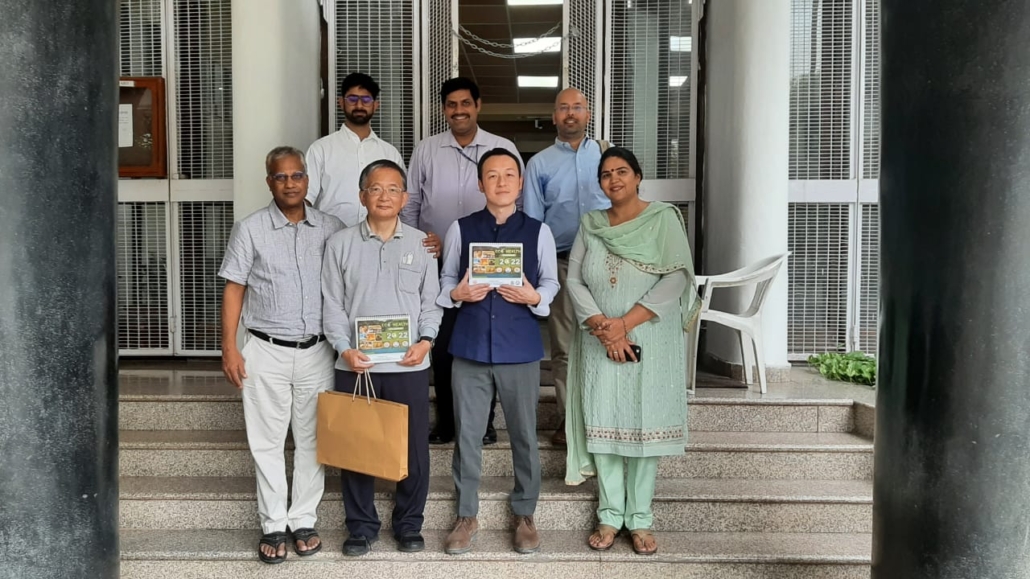Koral ‘Purnoor’, Demokretic Front, Chandigarh June 24, 2022
A delegation of Japanese scientists along with the Secretary, Economic Section, Embassy of Japan in India visited the Panjab University. The Japanese scientists are currently working in collaboration with Dr. Suman Mor, Department of Environment Studies in Aakash project (An Interdisciplinary Study toward Clean Air, Public Health and Sustainable Agriculture: The Case of Crop Residue Burning in North India), which focuses on the reduction of air pollution in North India from crop residue burning.
The Director, Research & Development Cell (RDC), Panjab University, Prof. Sudhir Kumar, interacted with the delegation and discussed with Mr. Yoshida Yuki, Secretary, Economic Section, Embassy of Japan in India, to strengthen collaborations with the Panjab University in the field of science, technology, art and culture through dual degree program including student exchange. Director RDC, Panjab University, apprised the efforts of Dr. Mor for her continuous work and contribution in the environmental research, science and communication field.
Prof. Yutaka Matsumi, Nagoya University, Japan and Dr. Tanbir Singh, Research Institute for Humanity and Nature (RIHN), Kyoto, Japan, mentioned that they have recently set up air quality monitoring sensors over the Indo-Gangetic Plain of India under the guidance of Dr. Suman Mor, Panjab University and Prof. Ravindra Khaiwal, PGIMER, Chandigarh.
Panjab University recently has developed a ‘Super Urban Monitoring of Air Pollution and Networking Site’ in Sector 25 near the continuous air quality monitoring station. This super site has partnered with the NASA citizen science project, USA; Aakash project, Japan; CSTEP, India and the University of Leicester, UK. Dr. Mor highlighted that this is the unique site for validating and standardizing near-real-time air quality sensors.
The Indo-Japanese delegation also discussed strengthening the joint scientific research for the common public’s benefit. The delebration focused on identifying practical solutions for the seasonal air pollution issues and how to minimize its adverse impacts for the overall improvement of the environment and human health.




